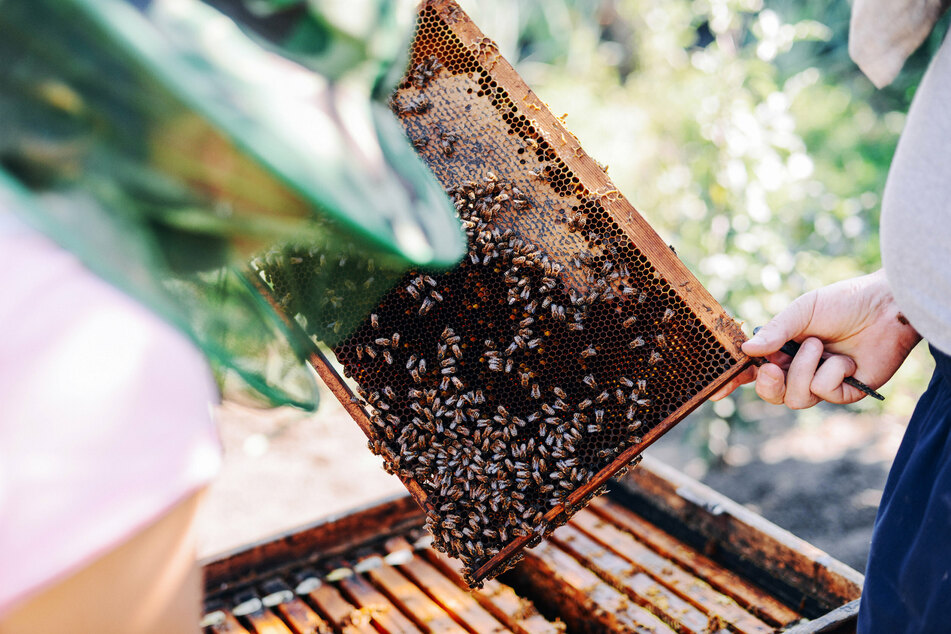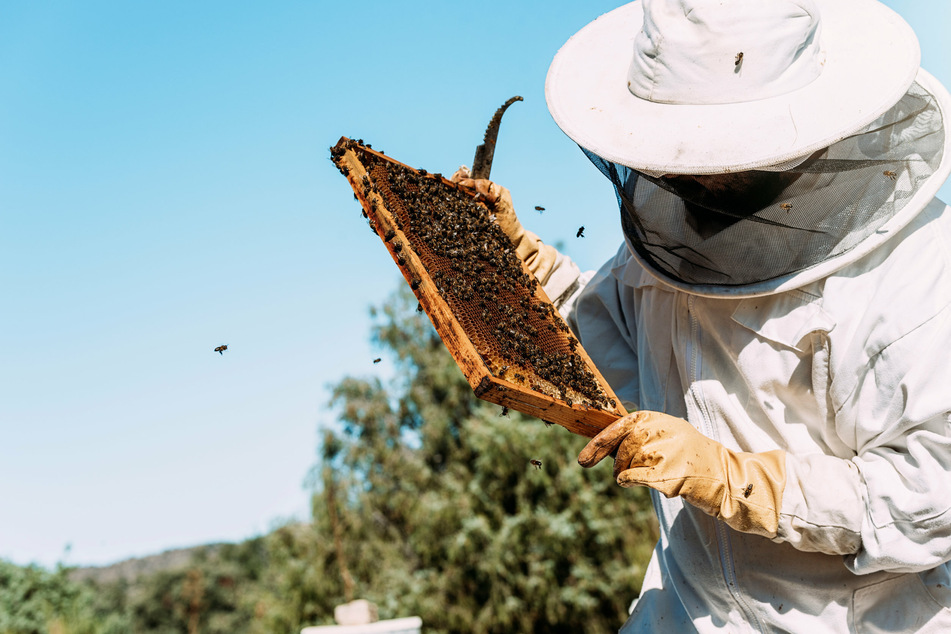Beekeepers are using the tech buzz to stop an epidemic of hive heists
Woodland, California - Beekeepers are increasingly turning to tech like GPS trackers to protect their hives from busy bee snatchers.

Every year, for a few weeks in Spring, beekeepers from all over the continental US head to California to provide pollinating bees for the annual almond bloom.
Almonds are 100% pollinated by bees and the demand for the nut has significantly increased in the last two decades.
This has made the value of pollinating bee hives jump from $50 to $230 per hive. But bee populations have been struggling for years due to climate change, drought, and disease, making the fuzzy insects a prized commodity in their own right.
The scarcity and demand for bees has made hive stealing extremely profitable, but it also threatens an already vulnerable bee population. "They steal to make money and leave the bees to die," Rowdy Jay Freeman, a Butte County sheriff’s detective and beekeeper, told the Associated Press.
So far in 2022, Californian authorities said that 1,036 beehives worth hundreds of thousands of dollars were reported stolen from orchards statewide. According to the Associated Press, the largest hive heist was in Mendocino County, where a whopping 384 beehives were stolen.
This theft prompted the California State Beekeepers Association to promise a $10,000 reward for information leading to recovery. Luckily, the association got an anonymous tip, that lead to the recovery of most of the stolen hives.
Beekeepers are using GPS and clear forensic paint

But beekeepers aren't just using rewards to protect their hives. They are also using technology.
Freeman reported that some beekeepers are marking their trays and boxes with SmartWater CSI, a forensic tool, that they can use like a paint. It's invisible to the naked eye, but glows under UV light. In fact, it's the same tool police use to trace recovered stolen property.
Helio Medina, who lost 282 hives in 2021, put GPS trackers in his boxes this year and he didn't stop there. He also tied his boxes down with cables and installed surveillance cameras. Medina also watches over his bees at night during the almond bloom, when they're most profitable.
The worst part about the thefts is that they come from inside the beekeeping community. In fact, the apiarists know that whoever is stealing the hives is probably someone they call a rustler, who is familiar with the transport of bees.
Until these rogue beekeepers get smoked out, thinking outside the box will have to do for those trying to protect their hives.
Cover photo: 123rf/ chinnna

